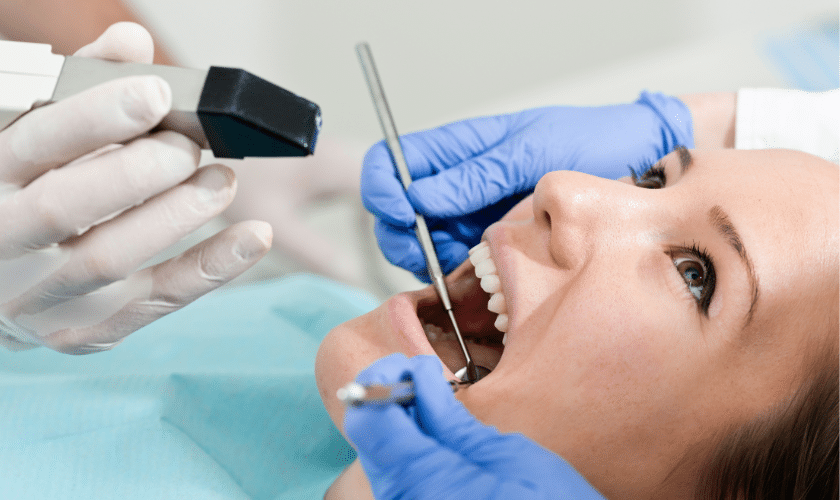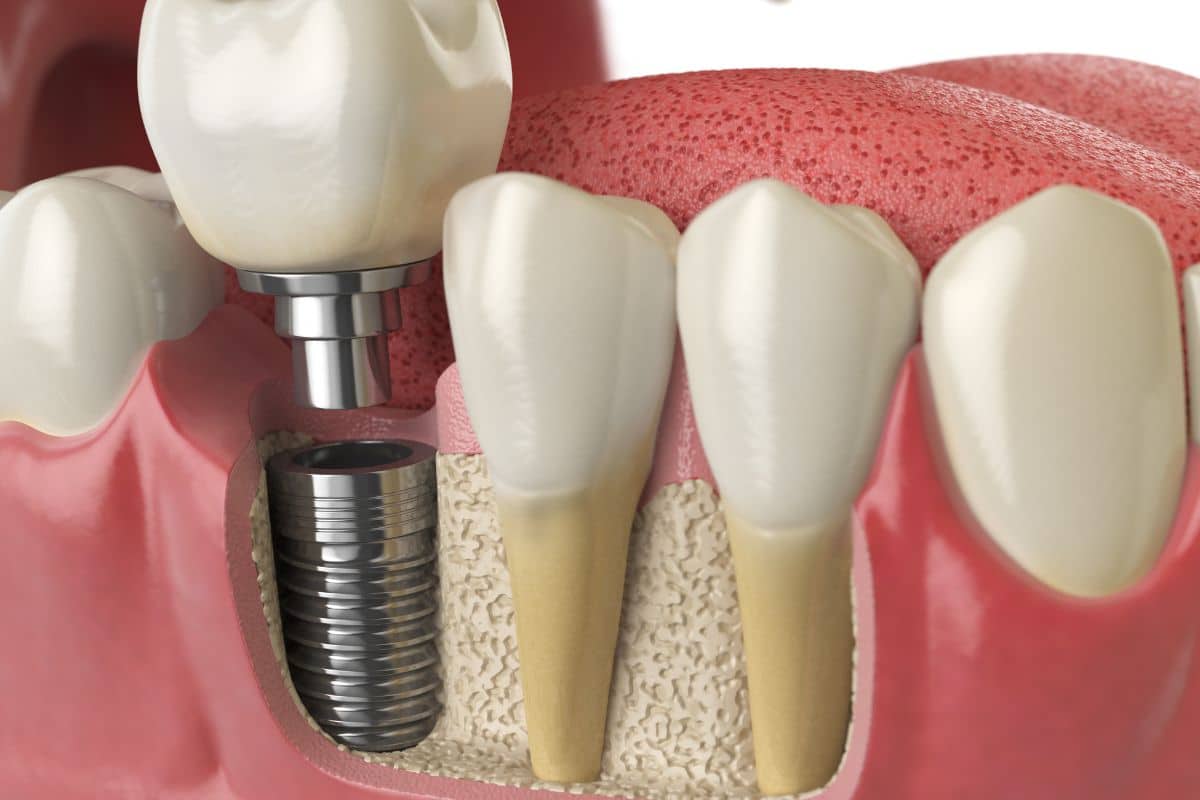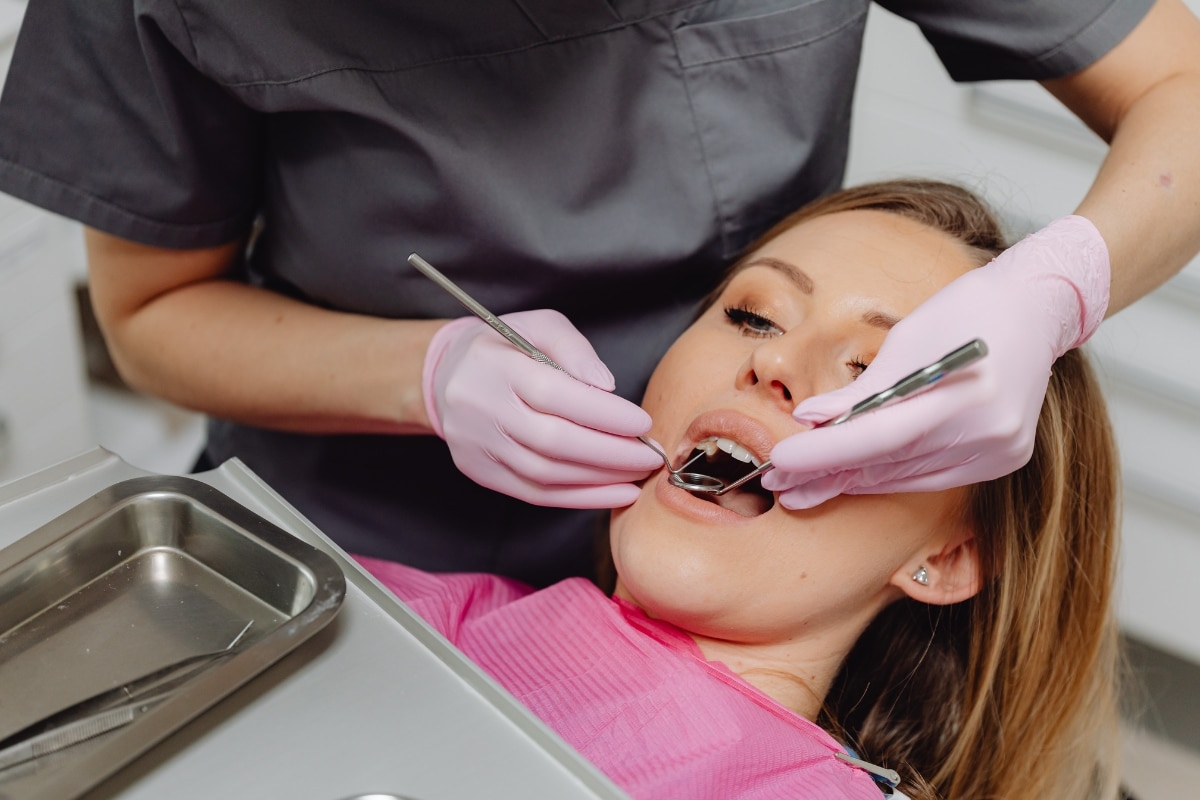Pay Online
What to Expect During a Full Mouth Reconstruction Procedure

Introduction
A. Definition of full mouth reconstruction:
Full mouth reconstruction is a comprehensive dental treatment that involves restoring or rebuilding all of the teeth in both the upper and lower jaws. This extensive procedure addresses multiple dental issues, including severe decay, damage, missing teeth, and bite problems, to improve both the function and aesthetics of the mouth.
B. Importance of full mouth reconstruction:
Full mouth reconstruction is crucial for individuals with significant dental issues that affect their quality of life. By restoring oral health and functionality, it not only enhances the appearance of the smile but also improves overall well-being, confidence, and the ability to eat and speak properly.
Preparation for Full Mouth Reconstruction
A. Initial consultation with the dentist:
The first step in full mouth reconstruction is an initial consultation with your dentist. During this visit, you will discuss your dental history, current concerns, and goals for treatment. The dentist will evaluate your overall oral health and outline the steps involved in the reconstruction process.
B. Examination and assessment of oral health:
A thorough examination of your teeth, gums, and jaw will be conducted to assess the extent of the dental issues. This may include checking for cavities, gum disease, worn or broken teeth, and alignment problems.
C. X-rays and imaging:
Advanced imaging techniques, such as X-rays, CT scans, and digital impressions, are used to get a detailed view of your oral structures. These images help the dentist to diagnose underlying issues and plan the necessary treatments accurately.
Treatment Planning
A. Customized treatment plan:
Based on the assessment, the dentist will develop a customized treatment plan tailored to your specific needs. This plan outlines all the necessary procedures, their sequence, and the expected duration of the entire reconstruction process.
B. Discussion of treatment options:
Your dentist will discuss the various treatment options available, explaining the benefits and drawbacks of each. This is an opportunity for you to ask questions and express any concerns you may have about the procedures.
C. Timeline and sequence of procedures:
A clear timeline and sequence of procedures will be established. This helps you understand the order in which treatments will be performed and how long the entire process is expected to take.
Procedures Involved in Full Mouth Reconstruction
A. Dental cleanings and treatments:
The reconstruction process often begins with a thorough dental cleaning to remove plaque and tartar buildup. Additional treatments, such as fluoride applications, may be performed to strengthen the teeth.
B. Restorative procedures (crowns, fillings, bridges):
Restorative procedures are a major component of full mouth reconstruction. These may include fillings to repair cavities, crowns to restore damaged teeth, and bridges to replace missing teeth.
C. Orthodontic treatments:
Orthodontic treatments, such as braces or clear aligners, may be necessary to correct misaligned teeth and bite issues. Proper alignment is essential for the success of the reconstruction.
D. Periodontal treatments:
Treating gum disease is crucial for a successful full mouth reconstruction. This may involve scaling and root planning (deep cleaning) or surgical procedures to restore gum health.
E. Implant placements:
For patients with missing teeth, dental implants provide a stable and permanent solution. Implants are surgically placed into the jawbone and topped with crowns to restore the appearance and function of natural teeth.
Recovery and Aftercare
A. Pain management:
Pain management is an important part of the recovery process. Your dentist may prescribe pain relievers or recommend over-the-counter medications to alleviate discomfort following procedures.
B. Dietary restrictions:
Following certain procedures, dietary restrictions may be necessary. Soft foods and avoiding hard, sticky, or chewy items can help protect your new dental work and promote healing.
C. Oral hygiene instructions:
Maintaining good oral hygiene is essential for the success of full mouth reconstruction. Your dentist will provide specific instructions on brushing, flossing, and using mouth rinses to keep your mouth clean and healthy.
Follow-Up and Monitoring
A. Post-operative appointments:
Regular follow-up appointments are crucial for monitoring the progress of your recovery. These visits allow the dentist to check for any complications and ensure that the healing process is on track.
B. Monitoring healing progress:
Continuous monitoring helps identify any issues early, such as infection or poor healing. Your dentist will make necessary adjustments to your treatment plan to address these problems promptly.
C. Adjustments and revisions:
Adjustments or revisions to dental work may be needed to achieve the best results. This could involve tweaking the fit of a crown, adjusting braces, or refining other restorations.
Potential Risks and Complications of Full Mouth Reconstruction
A. Infection:
As with any surgical procedure, there is a risk of infection. Following your dentist’s aftercare instructions diligently can minimize this risk.
B. Discomfort and swelling:
Some discomfort and swelling are normal after dental procedures. These symptoms typically subside within a few days but should be managed according to your dentist’s recommendations.
C. Poor healing:
Factors such as smoking, poor oral hygiene, and certain medical conditions can affect healing. It’s important to follow all care instructions and attend follow-up appointments to ensure proper recovery.
Results and Expectations
A. Improved aesthetics and function:
Full mouth reconstruction leads to significant improvements in the appearance and functionality of your teeth. A brighter, more aligned smile enhances your confidence, while restored function improves your ability to chew and speak effectively.
B. Long-term benefits of full mouth reconstruction:
The long-term benefits of full mouth reconstruction include improved oral health, prevention of further dental issues, and a boost in overall quality of life. Maintaining regular dental check-ups and good oral hygiene practices will help sustain these results.
Conclusion
A. Summary of key points:
Full mouth reconstruction in Elgin is a comprehensive process involving multiple stages, from initial consultation and detailed planning to various dental procedures and careful aftercare. Each step is crucial for achieving optimal results.
B. Importance of seeking professional dental care for full mouth reconstruction:
If you are considering full mouth reconstruction, it is essential to seek professional dental care. An experienced dentist can provide the expertise and guidance needed to navigate this complex process and achieve a healthy, functional, and beautiful smile.
In conclusion, full mouth reconstruction is a transformative journey that requires careful planning, skilled execution, and diligent aftercare. By understanding what to expect at each stage and following professional advice, you can ensure a successful outcome and enjoy the lasting benefits of a restored smile.
Recent Posts

Why Is It Critical to Replace a Missing Molar Even If It’s Not Visible When I Smile?

What Should I Do If My Child Knocks Out a Permanent Tooth in Elgin?

Can Invisalign Fix Overbite? How It Solves Complex Dental Issues in Elgin, IL

How Does Thumb-Sucking or Pacifier Use Affect Teeth?


